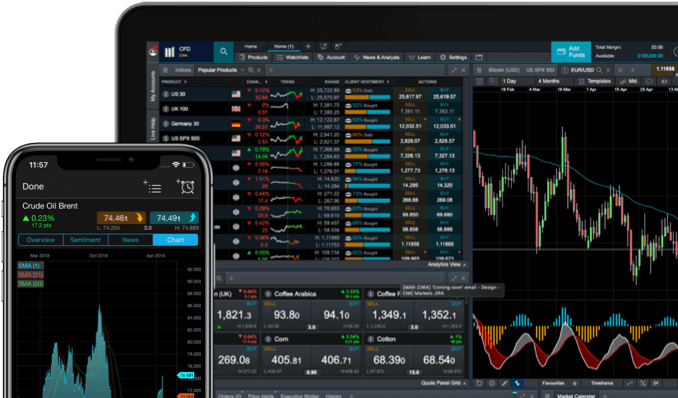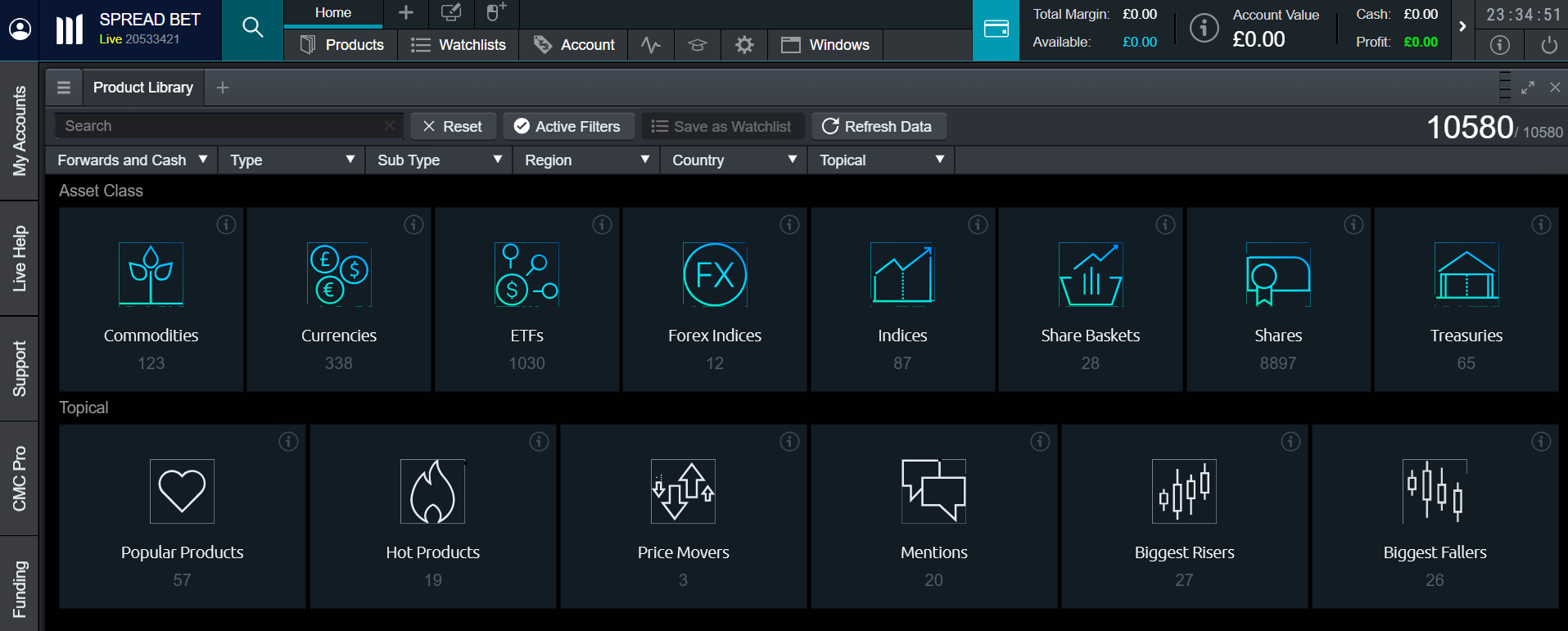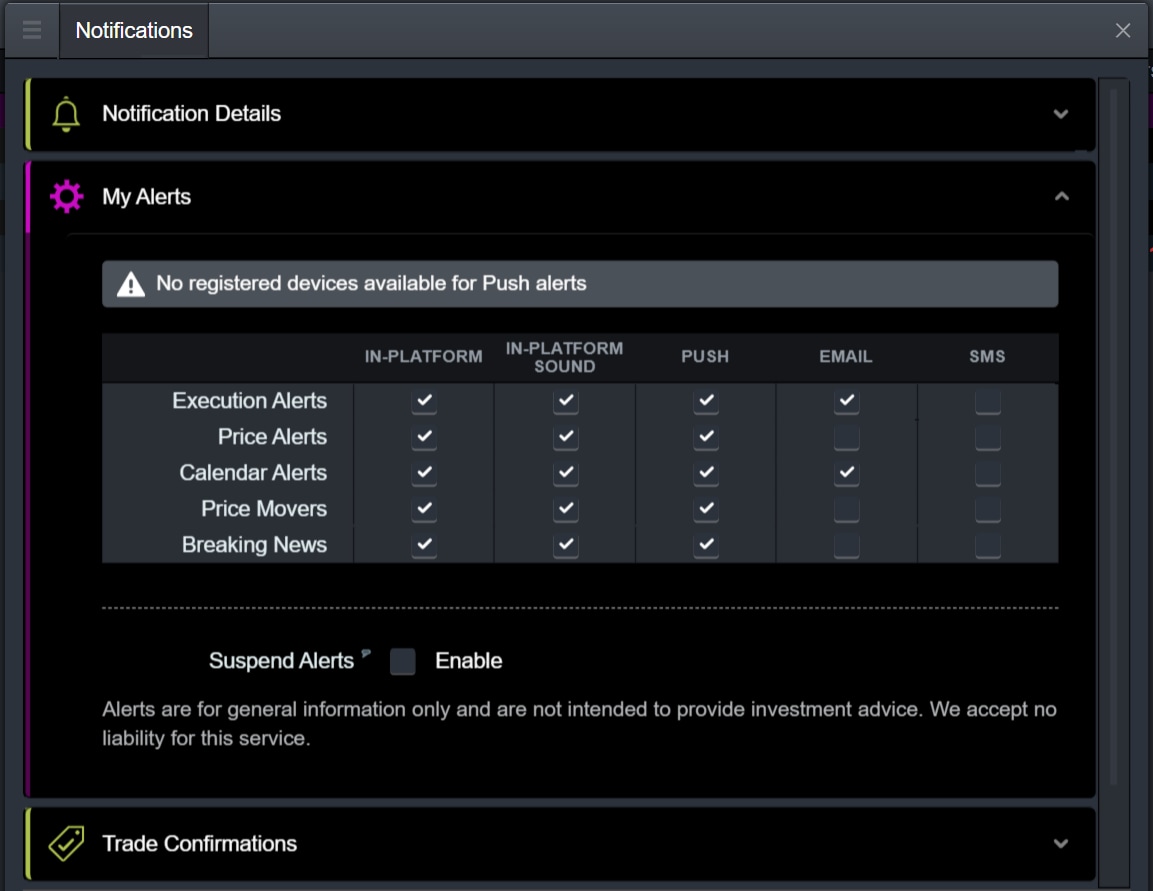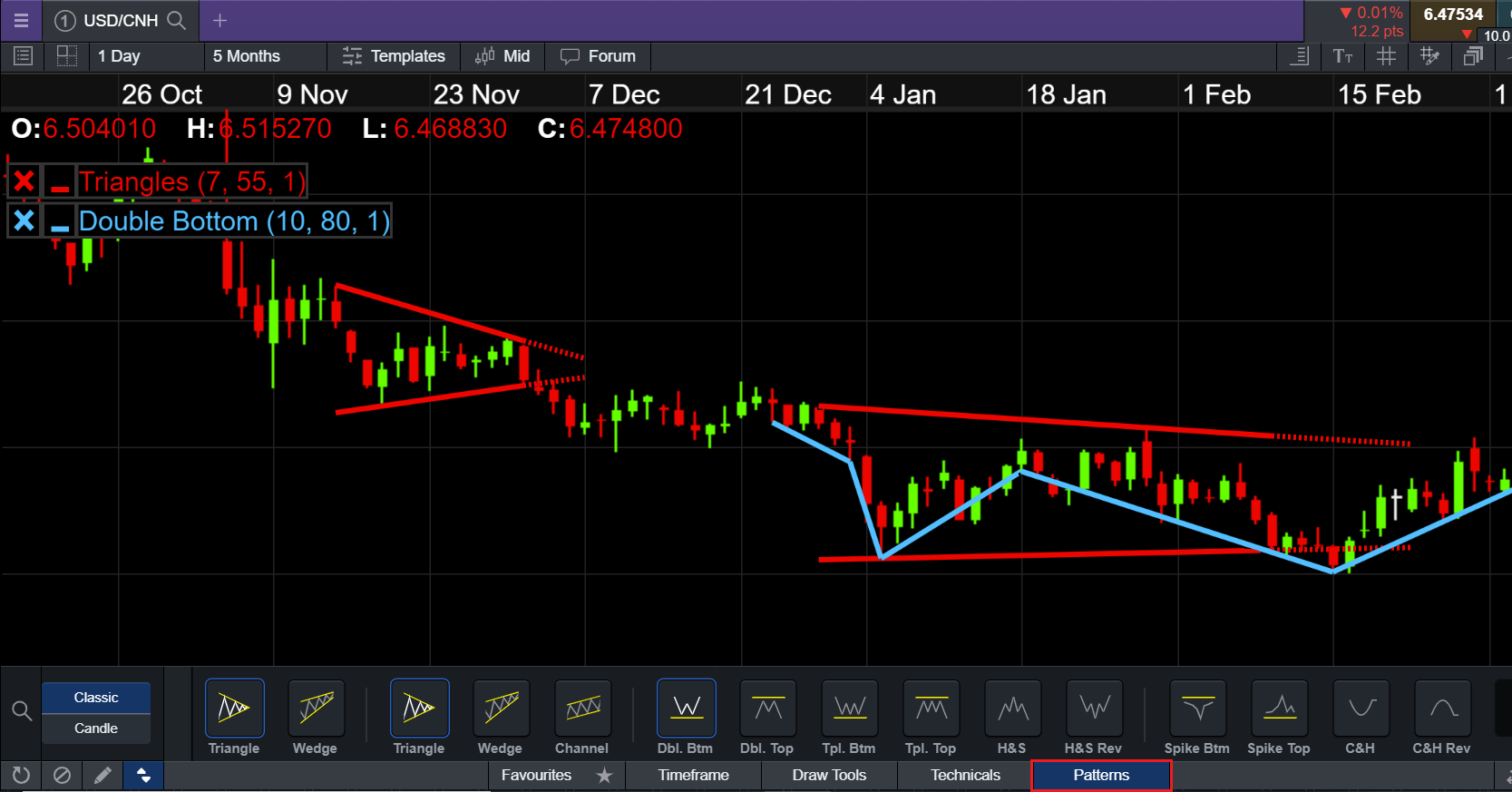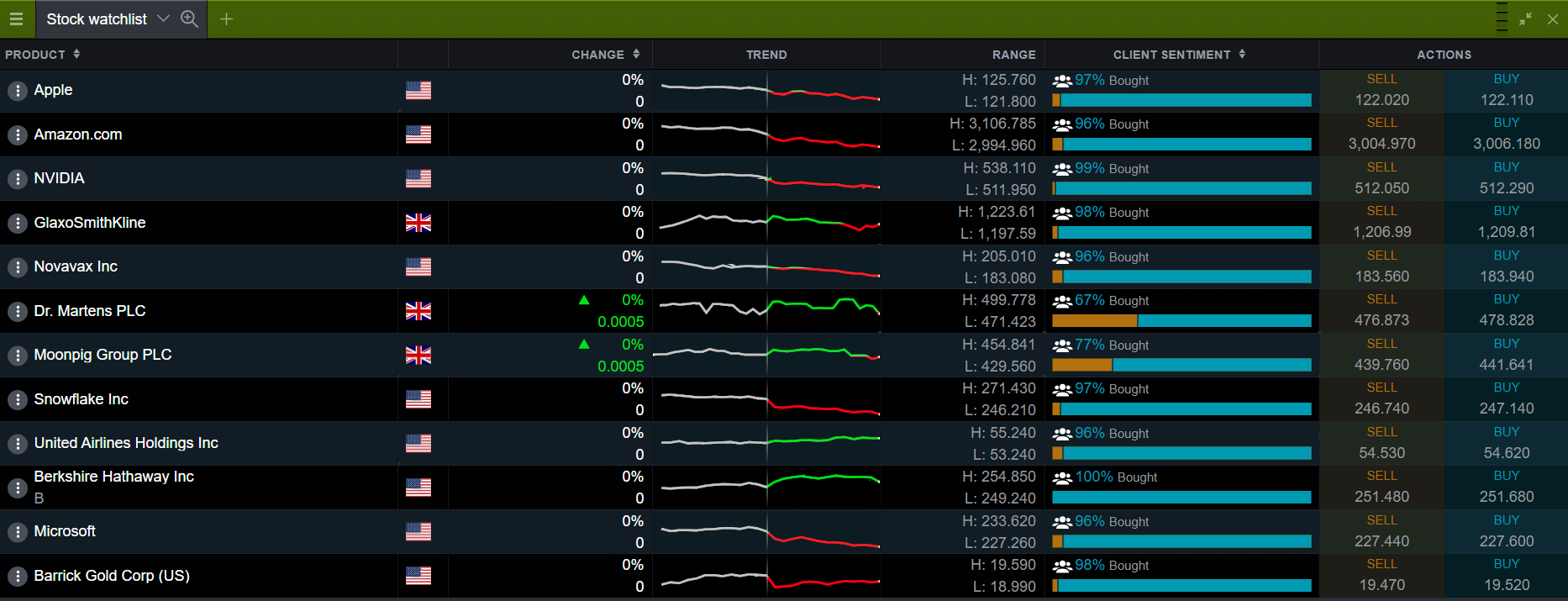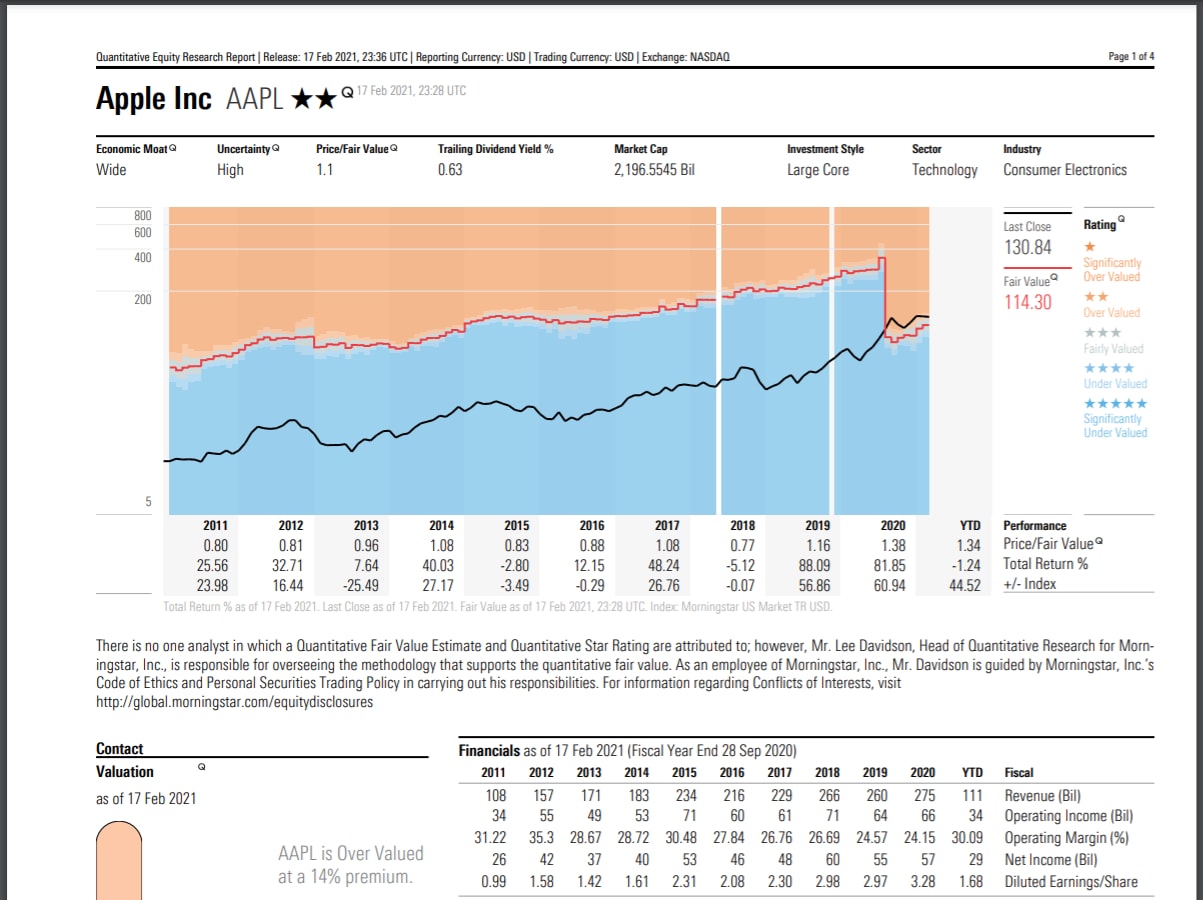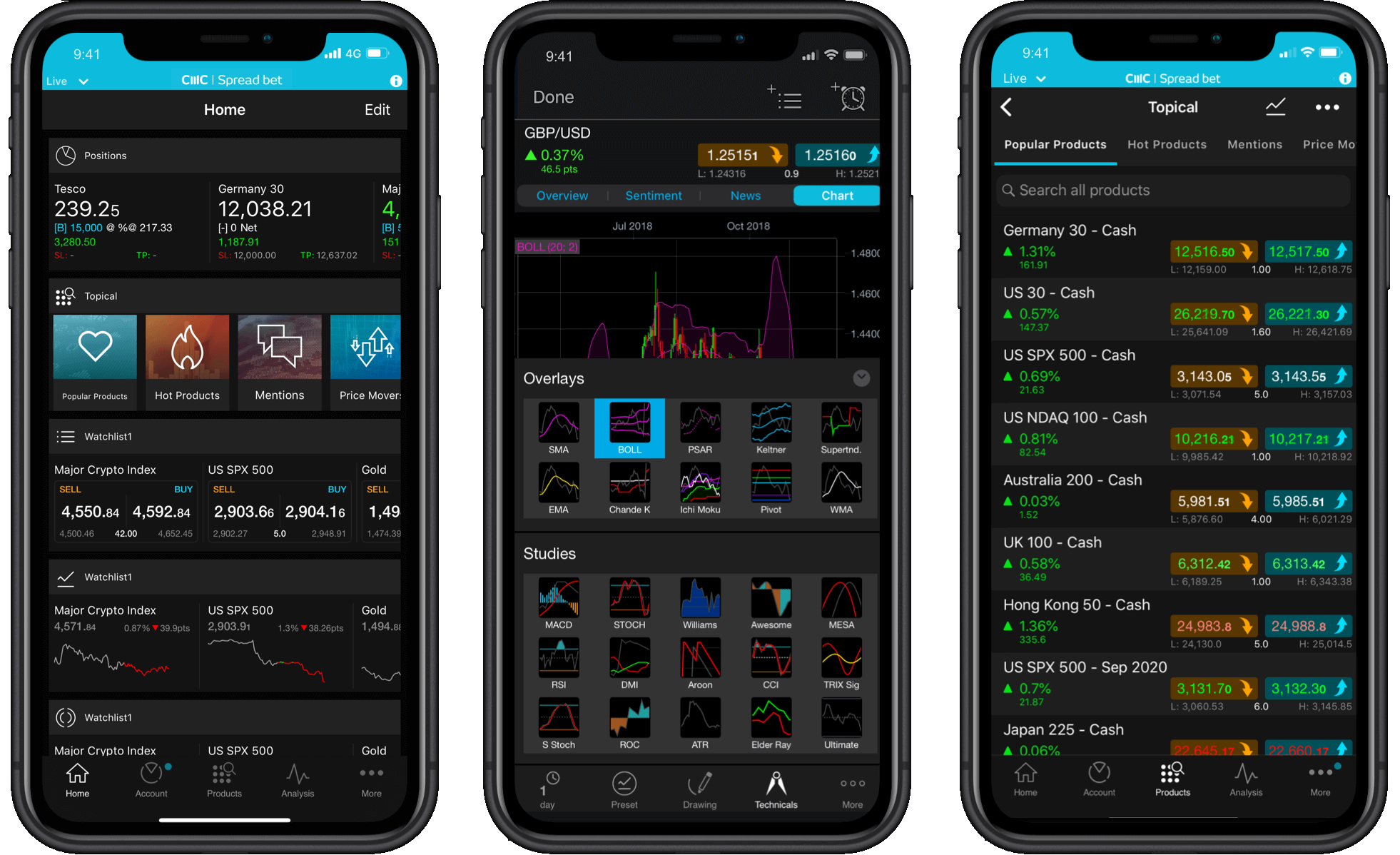We have put together a spread betting tutorial video that runs through the process of placing a trade on our spread betting platform. We also explain our charting features in further detail below and cover examples of spread betting on popular assets on our platform. Learn about getting started with trading on our platform with our step-by-step guide.
Spread bets and CFDs are complex instruments and come with a high risk of losing money rapidly due to leverage. 69% of retail investor accounts lose money when spread betting and/or trading CFDs with this provider. You should consider whether you understand how spread bets, CFDs, OTC options or any of our other products work and whether you can afford to take the high risk of losing your money.















